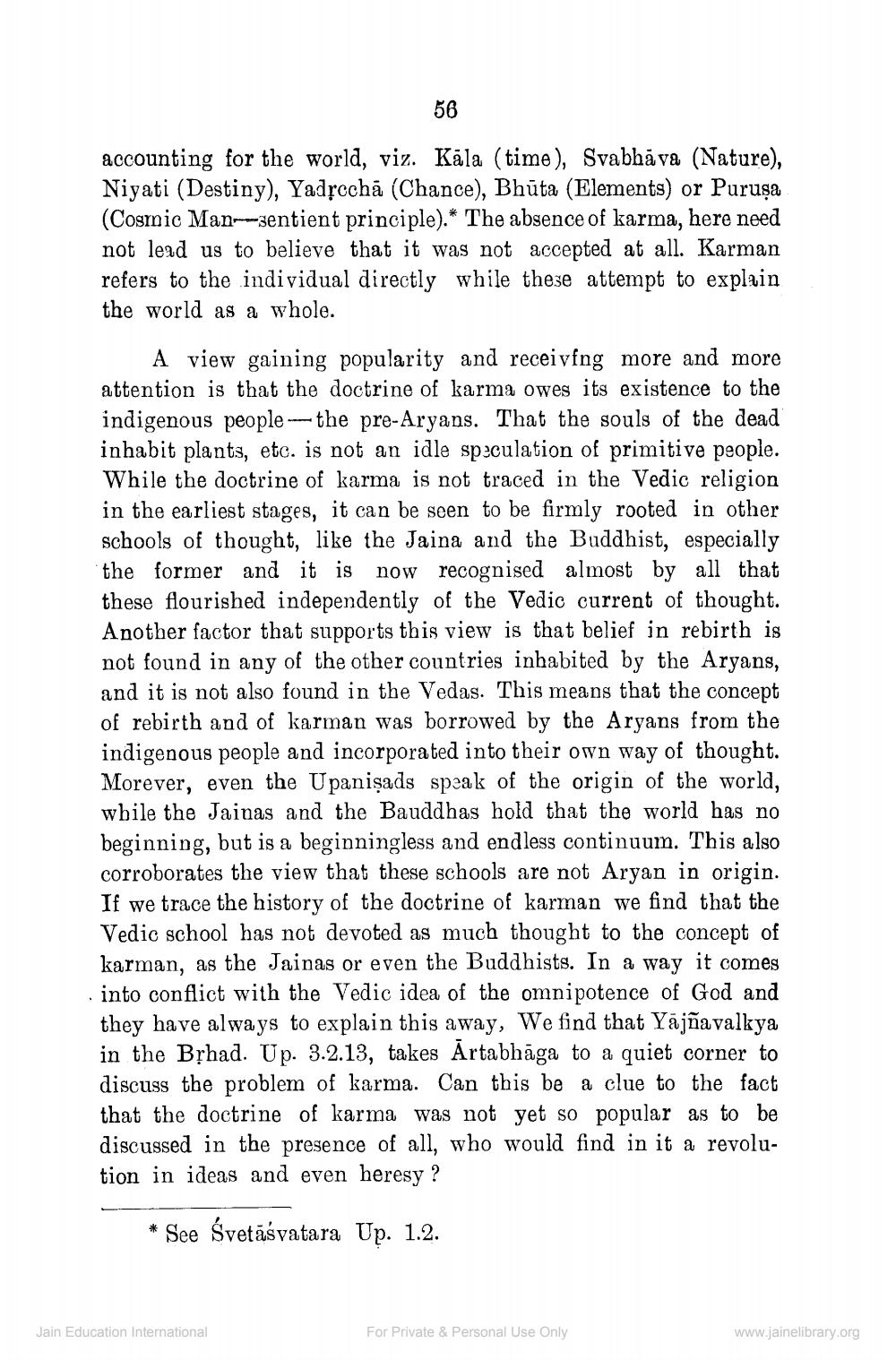________________
56
accounting for the world, viz. Kāla (time), Svabhāva (Nature), Niyati (Destiny), Yadịccha (Chance), Bhūta (Elements) or Purusa (Cosmic Man--jentient principle).* The absence of karma, here need not lead us to believe that it was not accepted at all. Karman refers to the individual directly while these attempt to explain the world as a whole.
A view gaining popularity and receiving more and more attention is that the doctrine of karma owes its existence to the indigenous people ----the pre-Aryans. That the souls of the dead inhabit plants, etc. is not an idle speculation of primitive people. While the doctrine of karma is not traced in the Vedic religion in the earliest stages, it can be seen to be firmly rooted in other schools of thought, like the Jaina and the Buddhist, especially the former and it is now recognised almost by all that these flourished independently of the Vedic current of thought. Another factor that supports this view is that belief in rebirth is not found in any of the other countries inhabited by the Aryans, and it is not also found in the Vedas. This means that the concept of rebirth and of karman was borrowed by the Aryans from the indigenous people and incorporated into their own way of thought. Morever, even the Upanişads speak of the origin of the world, wbile the Jainas and the Bauddhas hold that the world has no beginning, but is a beginningless and endless continuum. This also corroborates the view that these schools are not Aryan in origin. If we trace the history of the doctrine of karman we find that the Vedic school has not devoted as much thought to the concept of karman, as the Jainas or even the Buddhists. In a way it comes . into conflict with the Vedic idea of the omnipotence of God and they have always to explain this away, We find that Yājñavalkya in the Bșhad. Up. 3.2.13, takes Artabhāga to a quiet corner to discuss the problem of karma. Can this be a clue to the fact that the doctrine of karma was not yet so popular as to be discussed in the presence of all, who would find in it a revolution in ideas and even heresy ?
* See Svetāśvatara Up. 1.2.
Jain Education International
For Private & Personal Use Only
www.jainelibrary.org




